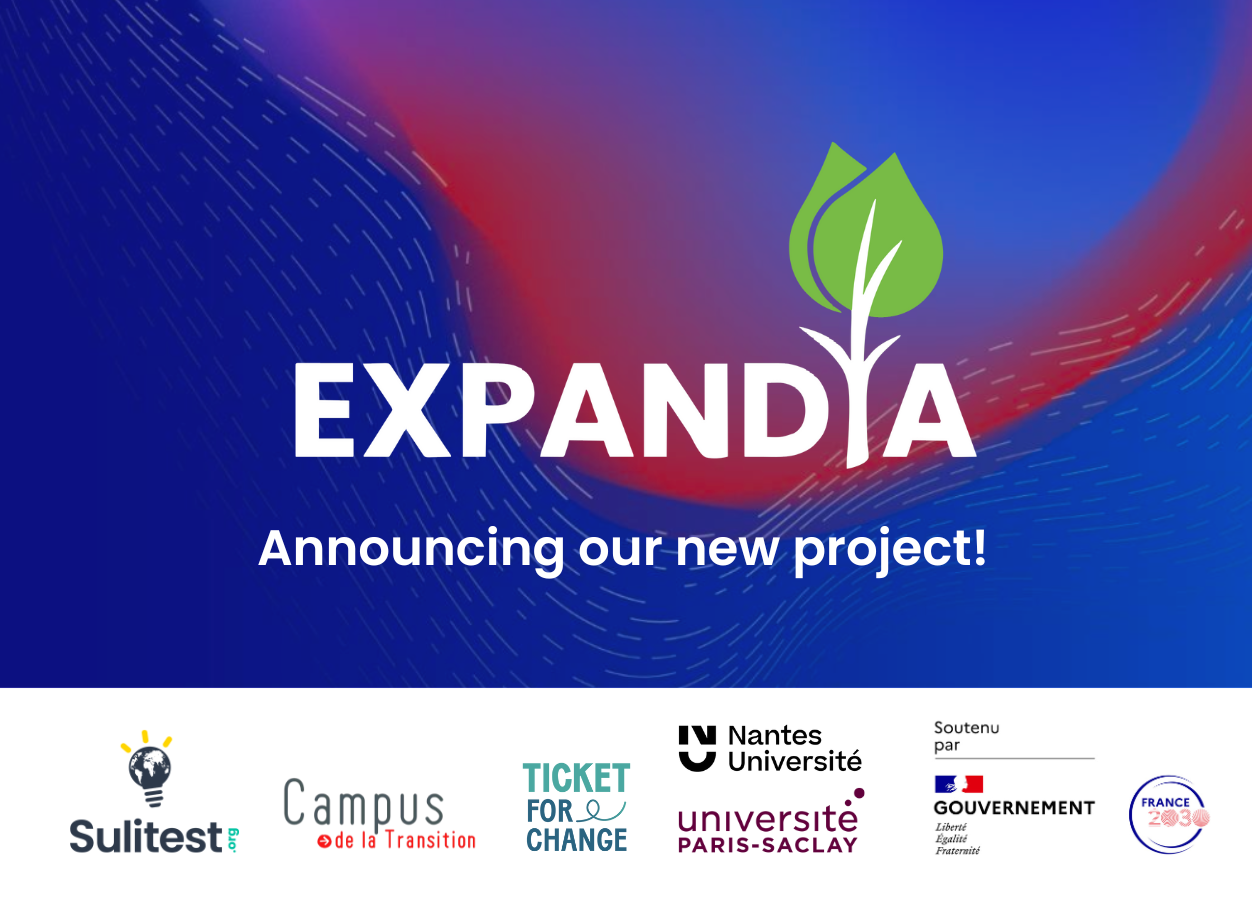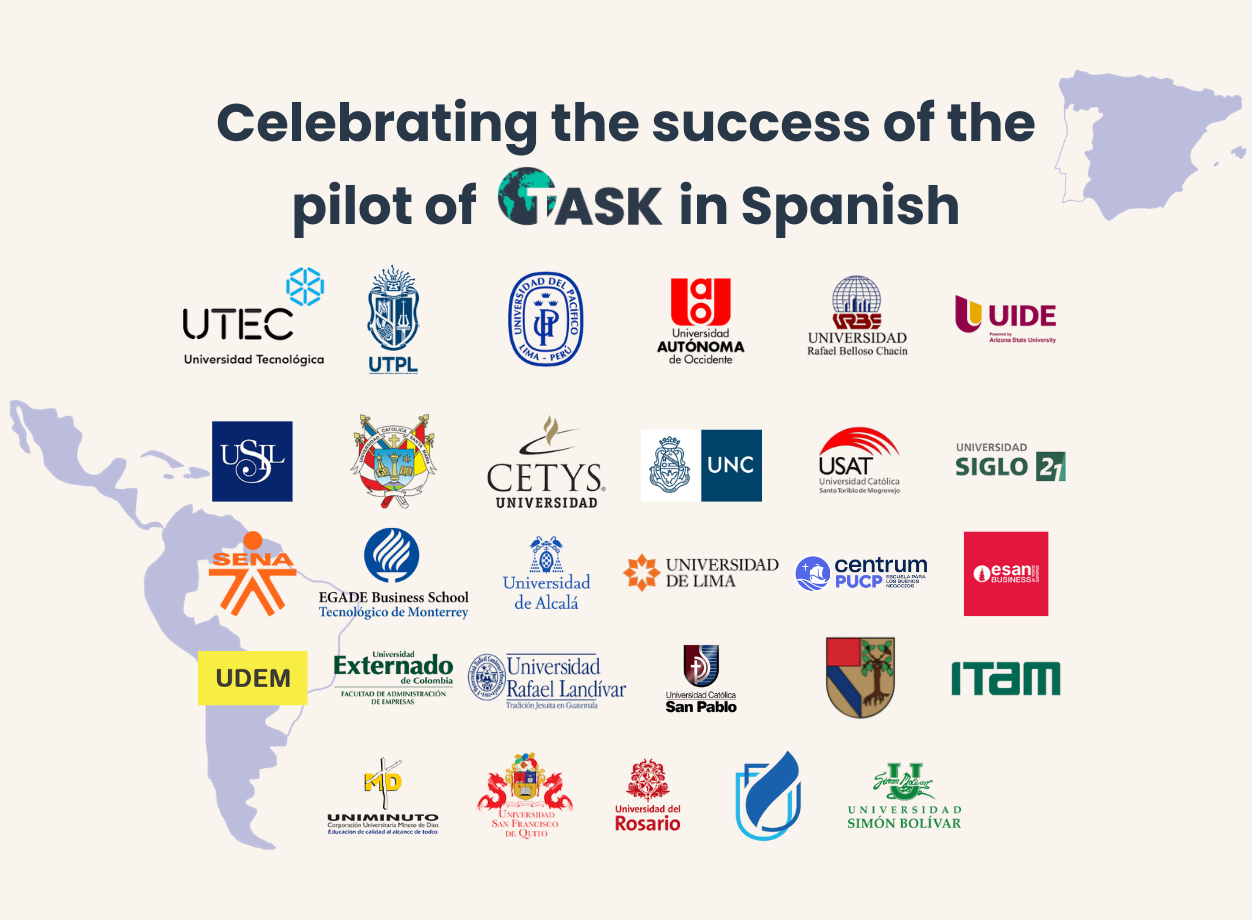
How to embed sustainability into education abroad programs

In a rapidly globalizing world, international education programs are uniquely positioned to foster the next generation of global citizens. But with the urgency of sustainability challenges, how can these programs align with the United Nations Sustainable Development Goals (SDGs) to create more impactful, meaningful experiences?
We were recently invited to moderate a webinar titled "Actionable Strategies & Tactics for Embedding UN SDGs in Education Abroad", hosted by Gateway International Group, which explored how institutions can integrate SDGs into their education abroad programs. Moderated by Aurelien Decamps, Co-Founder of Sulitest, the panel brought together Karen McBride (Community Colleges for International Development), Stephanie Leslie (Indiana University), and Ravi Raj (Authentica).

The panel centred the discussion around three key questions:
How do we design practical approaches to align international education with the SDGs? How do we engage students in immersive, meaningful experiences? And how can partnerships support SDG-driven initiatives?
Designing SDG-aligned international education programs
One of the first challenges addressed was how institutions can design practical and impactful education experiences that align with sustainability.
The panellists agreed that it starts with internal alignment—educating campus communities and identifying areas of intersection between existing academic activities and the SDGs.
Stephanie shared how Indiana University Indianapolis has worked to inform faculty about SDGs. By encouraging all international programs, whether SDG-focused or not, to assess their alignment with these global objectives, the university promotes sustainability awareness during the process of curriculum design and review. "We [also] allow students to search programs by SDG focus," Stephanie noted, emphasizing the importance of making these connections clear and accessible.
Beyond curriculum alignment, institutions must also look inward. Indiana University established a Green Team to reduce its carbon footprint by minimizing waste and prioritizing policies for sustainable procurement.
Karen highlighted the role of partnerships within the university, especially with sustainability offices. These partnerships can provide resources and frameworks that help international offices weave sustainability into program design. Karen encouraged institutions to “review who they partner with” and “find champions” who can push the sustainability agenda forward within their departments.
Meanwhile, Ravi pointed out the importance of measuring and mitigating impact. He shared how they map the impact—both positive and negative—of their programs on the SDGs and suggested that institutions consider tools like carbon footprint calculators for their programs too.
Engaging students in immersive and impactful experiences
When it comes to engaging students in global sustainability efforts, the panelists agreed that immersive, reflective experiences are key. It’s not enough for students to participate in study abroad programs; they must actively engage with the communities they visit and reflect on their impact.
Ravi urged educators to “teach students how to responsibly and respectfully engage with the local community,” emphasizing the need to reduce power imbalances that can often exist in study abroad contexts. Encouraging students to think about their role and the lasting impact they want to create is crucial for fostering a sense of responsibility toward global citizenship.
Karen added that narrative changes are needed within institutions to recognize and address knowledge gaps. This includes advising students on sustainable travel and providing pre-departure training that emphasizes the broader significance of international education. Equally important is the re-entry process, where students are guided to reflect on how their experience abroad will shape their future actions, whether in daily life, travel, civic engagement, or public policy.
Stephanie Leslie noted that these efforts should also extend beyond the international education office. Sustainable travel and SDG alignment should be a community-wide conversation, with resources made accessible to all students, not just those going abroad. By taking this inclusive approach, institutions can amplify the impact of sustainability initiatives across the entire campus.
Building partnerships to support SDG-driven initiatives
Partnerships are critical to advancing SDG-aligned education abroad programs. Whether it’s working with sustainability offices, external providers, or local communities, collaboration is essential for driving change.
Karen discussed the need to take stock of current partnerships and emphasized the importance of tailoring the message to different stakeholders—such as students, faculty, and leadership—to gain broad-based support. “The higher up you go, the more data you need,” she advised, highlighting the importance of backing proposals with solid evidence.
Ravi Raj added that partnerships should extend beyond the immediate timeframe of study abroad programs. Institutions should maintain connections with host communities even after students have returned, ensuring continuity and lasting benefits.
Finally, panelists shared that narrative and language matter, as they help shape the kind of students attracted to these programs. This approach not only increases the diversity of participants but also strengthens the sustainability impact.
Leveraging TASK™ to enhance SDG-driven education abroad programs
As universities seek innovative ways to integrate the UN SDGs into education abroad, tools like TASK™ (The Assessment of Sustainability Knowledge) can play a pivotal role. TASK™ serves as an assessment and micro-credential that aligns seamlessly with the objectives discussed by the panellists.
Pre-departure: broadening sustainability perspectives
One of the challenges raised during the webinar was how to engage students with sustainability before they even step on the plane (or train, hopefully). As Ravi mentioned, it’s essential to prepare students for responsible and respectful community engagement, and TASK™ can be an ideal pre-departure activity, introducing them to the broadness of sustainability—spanning environmental, social, and economic dimensions, giving them a better grasp of global sustainability challenges, opening their minds to deeper, more meaningful learning experiences abroad.
Re-entry: assessing impact and gathering evidence
The re-entry phase of study abroad programs is just as important for reflection and continued learning, as Karen emphasized, and TASK™ can be used as a post-assessment during this phase. This pre- and post-assessment approach not only helps students recognize their personal growth but also provides data-driven evidence of learning outcomes and the program’s impact—a key factor Karen highlighted when advocating for tailored messaging to leadership and faculty.
Scaling TASK™ for broader university impact
Moreover, as Stephanie noted, sustainability efforts shouldn’t be limited to international programs. While using TASK™ within study abroad programs can serve as a pilot assessment, it can also scale university-wide, fostering a broader culture of sustainability and expanding its impact across the institution.
Conclusion: The path forward for sustainable education abroad
The insights shared in this webinar underline a critical point: embedding the SDGs in education abroad requires intentionality, partnership, and a commitment to sustainability from all stakeholders involved.
From pre-departure orientation to re-entry reflection, every aspect of the study abroad experience offers an opportunity to align with global sustainability goals. Tools like TASK™ further support these efforts by providing a structured way to measure and demonstrate learning outcomes around sustainability. By embedding sustainability into the very fabric of international education programs, institutions can create meaningful, impactful learning experiences that extend far beyond the classroom. This helps students become true global citizens, capable of driving transformative change in their communities and beyond.












